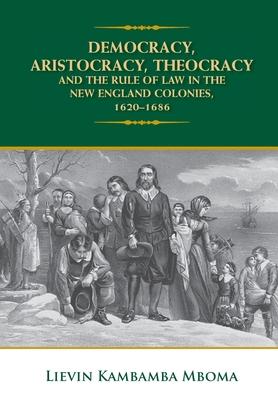With keen analysis, Mboma simultaneously records the democratic principles advocated by "freemen" in their respective towns, plantations, and villages. When all is considered, clear principles of rule of law in the colonies are revealed as creating the bedrock of Western government, including those of freemen, freedom of conscience and religion, equal justice, personal security, and civil liberties. The Massachusetts Body of Liberties, The English Magna Charta, the Connecticut Fundamental Orders of 1639, The Connecticut Code of 1650, The Mayflower Compact signed in 1620, the Rhode Island Code of 1647 and the Rhode Island Charter of 1663 serve as important primary sources for the laws and orders enacted to secure the liberties of the freemen, servants, and strangers which continue to shape contemporary governance in the United States. Readers will thus understand Mboma's insertion of the Constitution of the United States and his juxtaposing it with law in the New England colonies to connect the continuation of liberties in our current era.
For deeper understanding, towns liberties enjoyed by the freemen along with milestones in the evolution of the representative system of the New England colonies during the period under analysis are presented, and the expansions of self-governing forms of government in New Jersey, New York, and the Puritan settlements in South Carolina and Georgia are analyzed. This work offers scholars, professors, students, and the public vital information on the forms of government instituted in the New England colonies and allows for historical mapping of the legal principles and rule of law that subsequently shaped government in the free nations and United States generally.
